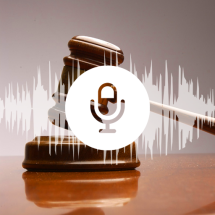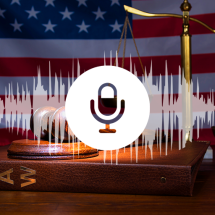A Juvenile Record is a permanent record that can be accessed by an agency or interested parties that has “legitimate interest” in your history. For many youths who have come in contact with the Juvenile Justice System, having an open criminal record can result in significant obstacles in obtaining financial aid, housing, employment and licensing opportunities, educational opportunities, and public benefits.
If you were charged with a crime before you turned 17 years of age, you have a juvenile record. Juvenile Records are, by law, non-public. Unfortunately, that does not mean that your record cannot hurt you. Many public data websites have come and gone since the dawn of the internet, and not all of the managers of these websites knew or cared about the confidentiality laws that protect Juvenile Records. As these internet businesses continue to come and go, your file could be made public. To tell you a short story, two or three years ago my Juvenile Record sealing business was booming because private websites were not obeying the law and it was hurting my clients.
Even Juvenile Records that are kept confidential can still cause a problem for adults with Juvenile issues in their background. The files are only kept secret from the general public. The Governments, all Governmental entities, still have access to Juvenile Records.
Automatic Restriction of Access to Juvenile Records
Family Code Section 58.203 restricts access to certain juvenile records. Records relating to an individual’s juvenile case that meet the criteria established by §58.203 are certified by the Department for automatic restriction
Upon certification, the department may not disclose the existence of the records or any information from the records in response to an inquiry from:
• a law enforcement agency;
• a criminal or juvenile justice agency;
• a governmental or other agency given access to information under Chapter 411, Government Code; or
• any other person, agency, organization, or entity.
The department may permit access to:
• a criminal justice agency for a criminal justice purpose; or
• for research purposes, by the Texas Juvenile Probation Commission, the Texas Youth Commission, or the Criminal Justice Policy Council.
The offices of Carl Ceder have handled hundreds of cases sealing this records. Give me a call before your teenage past causes you a problem.
Conditions for sealing Juvenile Record under Texas law
Section 58.003 of the Texas Family Code outlines the procedure with which one may be able to apply to have Juvenile Records sealed, and therefore removed from all criminal history databases. A person may have their record sealed if the following requirements are met:
• It has been two years since you were discharged
• You did not receive a determinate sentence in a Juvenile penitentiary
• You are not currently registered as a sex offender
• You were not tried as an adult
• There are no pending proceedings against you
• Since your discharge, you have not been convicted of a felony, a misdemeanor of moral turpitude, or been adjudicated of delinquent conduct. If there was no adjudication, the two-year waiting period is waived, and you can apply to have your record sealed immediately.
Moreover, if you were adjudicated as having engaged in felony level conduct your records will only be sealed if you are 19, and were not transferred from a Juvenile court to a criminal court for prosecution.
Additionally, if your records have not been used in the punishment phase of a criminal proceeding, and you have not been convicted of felony-level conduct since turning 17. Finally, if you have completed a court-ordered drug program, you will be eligible for the sealing of the record for the related offense.
Sealing of Juvenile Records: Texas Family Code Section 58.003
Notwithstanding Subsections (a) and (c) and subject to Subsection (b), a Juvenile court, on the court’s own motion and without a hearing, shall order the sealing of records concerning a child found to have engaged in conduct indicating a need for supervision described by Section 51.03(b) (5) or taken into custody to determine whether the child involved in conduct indicating a need for supervision described by Section 51.03(b) (5).
This subsection applies only to records related to conduct indicating a need for supervision described by Section 51.03(b) (5).
What is in my child’s Juvenile Record?
These are documentations of your child during his or her encounter with the Juvenile Justice System. It contains the following information:
• Necessary information such as name, date of birth and address
• Record of the arrest, detention, and charges
• Court documents
• Disposition and probation status
• Programming
When can my Child’s Juvenile Record be sealed?
• If your child was not found guilty or the charges were dismissed, a Juvenile Record can be sealed.
• If your child’s offense was a misdemeanor, a Juvenile Record must be sealed, pending a two-year restriction.
• If your child’s offense was a felony, a Juvenile Record might be sealed, pending a two-year restriction.
• If your child has completed a drug court process.
When can’t my Child’s Juvenile Record be sealed?
• If your child has received a determinate sentence for a felony.
• If your child committed a crime and the case began in Juvenile court but was later transferred to adult court.
• If your child has engaged in habitual felony conduct, resulting in a determinate sentence.
• If your child has been required to register and report to the Texas Sex Offender Registration Program.





















